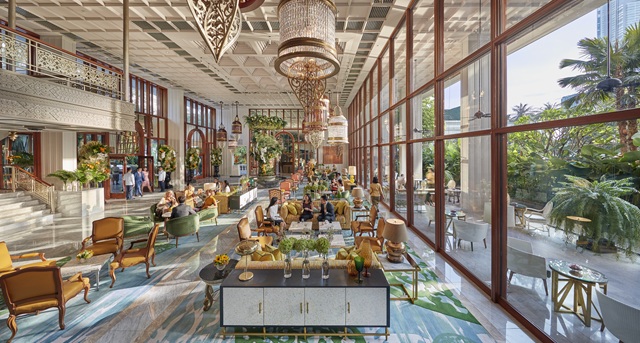Mandarin Oriental Hotel Group is ramping up its technology with the launch of an enhanced guest recognition programme and a new mobile app. Vice President of Global CRM and Customer Strategy, Andrew Cleary, spoke exclusively to HM about the use of technology in driving greater personalisation, elevated guest experiences and higher returns.
What are the expectations of the luxury guests when it comes to technology in the guest journey?
The requirement for travel to be effortless and for guests to remain seamlessly connected throughout their journey is universal across all segments. For luxury hospitality and high-net-worth guests, in particular, there is a deeper expectation that technology will not replace human touchpoints but rather enhance the in-person experience – while providing the option for self-service when convenient. An example of this is the purpose-driven approach we have taken with the new M.O. App, giving guests the option to either self-serve or to immediately connect through to the Concierge, Guest Relations or other team members for any requests. It can never be a one-size-fits-all solution.
How is Mandarin Oriental using technology to better personalise the guest experience?
With our recently launched Guest Experience Programme, Mandarin Oriental has crafted an experience that is centred around guests being recognised and engaged as individuals throughout their journey. This is achieved by bringing together the redesigned Fans of M.O. guest recognition programme with the new guest app, which makes it easy for guests to provide always-on or stay-specific preferences which then flow through to back-end colleague operations for execution. Complementing the guest app, a new colleague-facing app surfaces these guest preferences along with the guest profile and real-time service requests in the one place, allowing for immediate personalisation of service and a more proactive approach to overall experience management.
How is the latest technology assisting hotel teams in doing their job?
The challenge for hotel colleagues is rarely that they don’t have enough data or guest insights to act upon, it’s that they cannot easily access the right data, in a simple format and all in the one place. The introduction of the right technology, paired with thoughtful service and operations design for our business, is allowing our colleagues to more easily understand the unique needs, preferences, and history of our guests in real time. This is significantly time saving for colleagues, meaning less time spent on manual reports and profile compilation and more time actively using these insights to tailor experiences and create truly unique memories. And that’s exactly what luxury guests expect and what we strive to deliver: those rare, unexpected moments that feel entirely personal and exquisitely tailored.
How is technology supporting revenue generation?
The application of new technology to revenue generation presents endless opportunities, with one common requirement: connected, actionable data. By bringing together a more complete understanding of our guests across all brand touchpoints through a central Customer Data Platform, Mandarin Oriental has been able to improve the conversion rate from direct marketing through more accurate targeting – getting the right message in front of the right guest, in the best channel to reach them. It’s essential to also deploy different marketing and communications strategies to different audience segments, ensuring a more bespoke and 1:1 approach for UHNW and other high-value guests while using technology to ensure brand-level marketing is never ‘mass’ in how it is executed across different guest channels.
How do you balance the demand for modern technology amongst guests with the expectations of a high-touch, luxury service?
The use of technology is entirely consistent with the high-touch service expected by luxury guests, but only if the technology has been implemented in service of the end-to-end, online-to-offline guest journey. Technology alone is unlikely to sway the contemporary luxury consumer: they are experience-led, and so long as technology is elevating the overall experience (both digital as well as in person) then it will be viewed as additive and on-brand. With the Guest Experience Programme at Mandarin Oriental, we spent more than two years examining the role of digital channels, data and technology – as well as human touchpoints and service moments – from both a guest and colleague perspective. What we’ve built is a cohesive experience where the data and technology serve as quiet enablers in the background, digital channels are seamlessly connected to the in-hotel experience, but it’s the in-person experience and gracious, human-led service that remain at the heart of our offering.
Is there anything else you can share about how technology is changing the guest experience at Mandarin Oriental?
We are very deliberate in the overarching philosophy and detailed experience design for why and how we deploy technology and where it relates to the guest experience. Fundamentally, we do not seek to use technology to change the guest experience, we have always sought to deeply understand our guests, to smooth any pain points, and to personalise experience based on insights into each individual. The change for Mandarin Oriental will more likely be felt internally, whereby new technology and data is making it easier for our colleagues to more quickly get to the right information to begin tailoring the guest experience. But, from a guest perspective, it will always be the ’swan on the lake’ – what is visible above the surface must remain the graceful, effortless choreography that defines the legendary service Mandarin Oriental is known for.


